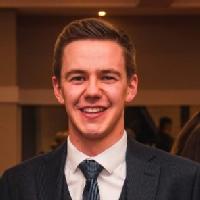Career Pathways in Modern Languages
Where will a degree in languages take you? Find out more from our recent graduates about how language skills can further your career opportunities and employability, nurture your creative talents, and help you discover what you can give back to the world as a global citizen. You can also watch videos from some of our recent graduates here.
 Alexandra Kirby
Alexandra Kirby
Marketing Research Associate, Berlin
I graduated with a first-class degree in Business and German. After graduating I moved to Berlin, having received a job offer from Studio71 (a subsidiary of ProSiebenSat.1 Media SE), in which I had completed an internship during my year abroad. I worked firstly as an Artist & Repertoire Manager, a talent scout role for online influencers. I then moved to the sales team, where I was responsible for brand-artist collaborations within the beauty, fashion and lifestyle segment. All of this work was in German, so my language skills were in use all day, every day. I am now a Marketing Research Associate at the Hochschule für Wirtschaft und Recht Berlin, part-time content writer at Think.Speak.Transform, as well as a doctoral student at the University of Twente. I am currently in my second year of a four-year programme, and my research topic is artificial intelligence and brand voice. I have just submitted my first journal paper, an empirical study of how far consumers perceive artificially generated promotional material as authentic.
 Laura Connelly
Laura Connelly
Marketing Coordinator for the European Consumer Products Division at Sonoco
I graduated from Warwick in 2019 with a Hispanic Studies and French degree. I knew that I wanted to study more languages if given the opportunity, so I took Portuguese in my final year, for which I was awarded a First. I also took an intensive Russian Summer Immersion course in London during my 2018 summer vacation, and studied Chinese Language for Beginners during my Masters. After graduating I decided to expand my skills and learn more about the professional settings in which they could be applied. It was for this reason that I applied for an MSc in International Business at Warwick Business School. My MSc enabled me to gain experience in all aspects of international business and to consider how the knowledge I had acquired in my first degree could be applied to and add value within a professional framework. It also afforded me the opportunity of expanding my professional network to Sonoco, the company where I am currently employed. I’m very fortunate to be able to use my languages on a daily basis in my role, given that our Marketing Team focuses on the European market, and I have colleagues with whom I collaborate regularly based in France, Spain and even Latin America (Sonoco’s Corporate HQ is in the States). I have contributed to the translation of customer letters and our new website; I’ve also liaised with our European customers, facilitated integrations of new European subsidiaries into our European Division, and provided in-depth cultural insight for our numerous and varied market research projects. I would not be in a position to add so much value to the business without my linguistic competence; indeed, the first question that our Vice President asked about me was: “Does she speak any languages?”! Studying languages makes you stand out to senior management — as well as providing me with more friends than I thought possible, not only from the French and Hispanic cultures, but also across the Globe.
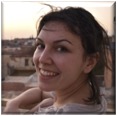 Viktoria Dimitrova
Viktoria Dimitrova
Grants Officer at the European Climate Foundation in Brussels
I graduated with a degree in Politics and French, and now work as a Grants Officer at the European Climate Foundation.
Straight after graduation I worked for two years as the Project Development Lead at a small London-based international women’s development organisation. There I needed Spanish and French to facilitate my communication with grantees from partner countries in Sub-Saharan Africa and South America. I currently work as Grants Officer at the European Climate Foundation where the staff and grantees are from all over the world. The teams I work with are often francophone, and most colleagues of mine in the Brussels office speak Spanish as well. A large number of the grantees with whom I communicate on daily basis have Spanish as their mother tongue and prefer it as a common language of communication. Hence, I use foreign languages in my day-to-day work, and I find it incredibly stimulating.
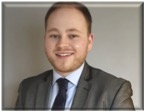 Jae Marple
Jae Marple
Spanish/Portuguese/French translator
I graduated with a Modern Languages degree combining Spanish, French, and Portuguese. I’ve always loved French since my very first lesson at secondary school, while my desire to learn Spanish and Portuguese came about through the great interest I developed in Latin America during Geography lessons at school. After completing my MA in Applied Translation studies I set up a freelance translation business in 2019 and now work for a mixture of direct and agency clients, specialising in sport, tourism and international development translation. The knowledge that I acquired in my language and cultural modules at Warwick equipped me with the linguistic and cultural expertise that I use every single day to produce high-quality translations. Having to hand in multiples pieces of work for all three languages every week at Warwick has also prepared me to deal with tight deadlines in the translation industry — clients want everything doing yesterday. Studying languages at Uni gives you the chance to delve deeper into the cultures of the countries where these languages are spoken and the invaluable opportunity to live and work/study in other countries and meet people from all over the world.
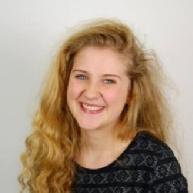 Hanna Ward
Hanna Ward
Freelance Journalist, Times Radio and BBC World Service
I graduated in 2020 with a first-class degree in French with Theatre Studies. Since graduation, I have been working as a freelance journalist at Times Radio and more recently, the BBC World Service. Working in journalism enables me to use my language skills more than I thought – I am frequently booking guests to speak and comment on international stories from France and beyond, and it is much easier to get them to agree to speak to us by emailing or calling them in French! I've spoken to Emmanuel Macron’s former defence adviser, for example, as well as to members of the French Senate and journalists from France24. My first day working at the BBC also required me to ring the French embassy in Paris, Australia and the US as I was the only one on the team to speak French.
James Pearn
Department for International Trade Adviser, British Embassy in Paris
I graduated in 2020 with a first-class degree in French and History. I work at the Department for International Trade, a UK Government department that supports UK exporters with their overseas ambitions, attracts foreign direct investment to the UK and finally champions free trade around the world. Between September 2020 and December 2020, I worked as a Trade Officer (internship) within the Export Growth team. In December 2020, I secured a full-time contract working within the Sports Economy team at the Department for International Trade France. Our team supports UK companies within the sporting events sector to access commercial opportunities for upcoming major events in France, notably the Rugby World Cup 2023 and the Paris 2024 Olympic & Paralympic Games. More broadly, we support the wider British Embassy’s Paris 2024 preparations, with the Olympic & Paralympic Games providing a prime opportunity to support Team GB in the closest event to a Home Games, to promote the UK as a force for good, as well as to champion the Franco-British bilateral relationship. Working within an Embassy involves using French on a daily basis, both written and spoken – an aspect of my job that I love.
 Rhys Felton
Rhys Felton
Postgraduate student, MA in Politics and International Studies
I graduated in 2020 with a first-class degree in French with Spanish. I have used my language degree to earn a place on a Masters course in Politics and International Studies at Warwick. My languages were a key part of my successful scholarship application as I highlighted that I will be able to read papers and journals outside of anglophone academia. The communication skills that developed out of my language degree will allow me to combine my thoughts and ideas with others to gain more comprehensive understandings of political complexity. My language studies, especially the cultural modules, have provided me with critical thinking skills that will prove essential for asking the empirical and normative questions that constitute the foundations of contemporary politics. My degree in languages undoubtedly gave me an appreciation of different perspectives and ways of thinking. This kind of holistic thinking is central to a field as broad and comprehensive as politics.
 Georgia Hughes
Georgia Hughes
Project Coordinator, British Red Cross Refugee Services
I studied French Studies with Arabic and graduated in 2019. Since graduating I have had three jobs. Firstly, I went to Paris to work as an English teacher, then on my return to the UK, I started to work for the British Red Cross Refugee Services as a Project Coordinator for their Family Reunion Integration Service. Working for the Red Cross allowed me to use my languages as the refugee families with whom we would work often came from French speaking countries in Africa such as the Democratic Republic of Congo and we had many Arabic speaking families from Sudan to Kuwait. It was great to be able to use my languages directly with the families we worked with without having to use a translator because it meant that there was a stronger connection and sense of trust between us. Without having studied Arabic ab initio at Warwick, I doubt that I would be doing what I am today, studying an MA in Politics & International Relations of the Middle East.
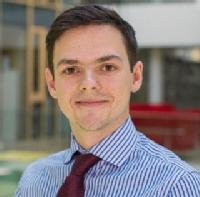 Joseph Lewsey
Joseph Lewsey
Patent Translator for the World Intellectual Property Organization
I studied French and German Studies and graduated in 2016. After graduating, I completed an MA in Applied Translation Studies, then got a job as a patent translator for the World Intellectual Property Organization (WIPO) in Geneva from September 2017, focussing predominantly on translating patent texts from German into English. Since March 2018 I have been working remotely for WIPO back in the UK. The language and translation skills developed in the language modules were naturally invaluable for my current line of work, but also honing my writing skills and analytical skills in the content modules, as in my profession I need to put much thought into how I phrase and structure each sentence in the legal texts. Finally, as my first job was based in Switzerland, the fact I had already lived abroad for a year and done volunteer placements abroad meant I was well-prepared for a career with an international focus. My language degree gave me the global outlook I needed to work within the UN system, as you work with people from all around the world on a daily basis.
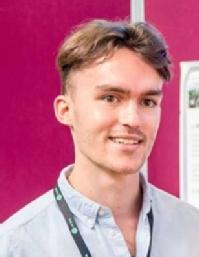 Sam Colman
Sam Colman
Trainee Solicitor at Norton Rose Fulbright
I graduated in 2019 with a first-class degree in English and French. After graduating, I studied for an MSc in Global Governance and Ethics and founded a podcast called Global Governance Futures. After graduating I secured a spring vacation scheme and consequent training contract with the city law firm Norton Rose Fulbright. One of the key reasons I chose the firm was the quantity of international work and the recruiters’ interest in applicants who sought this challenge. Here, the experience on my year abroad was undoubtedly one of the key elements of my time at Warwick that boosted my employability. With over 50 offices globally at the firm I work for, most tasks carried out by a trainee will involve multiple jurisdictions (countries). This means that lawyers from different offices around the world will be working together throughout the 24-hour day on a specific deal. Flexibility and an appetite for working abroad is important within international commercial law, be that a secondment or a drop-of-the-hat trip.
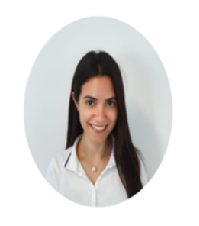 Burce Emertal
Burce Emertal
Digital Content Writer
I studied French Studies with Italian, and I work as a Digital Content Writer/Editor where my role is to write content in different languages. I use languages at work all the time! Content writers write articles for websites in order to bring website traffic. These can be blogs, opinion pieces, reviews, educational material or technical descriptions that optimise a web page for search engines. I manage the French, Italian and German markets of the websites in my team’s project, therefore write content in French, Italian and German on a daily basis.
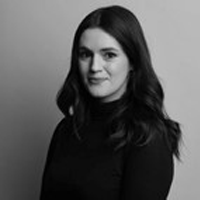 Lora Jones
Lora Jones
Business reporter for the BBC
I graduated in 2015 with a First-class degree in French Studies with Arabic. On graduating, I started working for the Mayor of London’s official promotional agency, London & Partners, as a Junior Press Officer. I was responsible for drafting press releases, speeches, arranging media events and interviews with journalists from the French, US, and UK markets. Within two years I was promoted to Senior Press Officer and accompanied the mayor on press trips to France to promote new export programmes and started to focus more on business and technology news. I then decided I’d prefer to be on the other side of the table – the one asking the questions. So I completed my journalism qualifications part-time and joined the BBC as a Business & Economics Researcher in 2018. Since then, I’ve become a Business Reporter, focussing mainly on consumer rights, retail, and economics. My language skills still come in useful every week at work. I’ve been asked to help translate French documents for Brexit coverage, fact-check trade statistics and co-produce a long-read for the BBC News website on the gilets jaunes. Plus, the core communication skills I learnt during my degree are intrinsic to good writing.
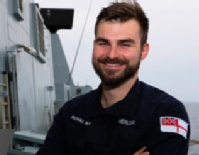 Jack Mercer
Jack Mercer
Lieutenant, Royal Navy | Naval Intelligence
I graduated with a degree in French and History in 2015, which included a year's study placement at the Sorbonne University in Paris. Quickly realising I had a fondness for travel, I decided to join the Royal Navy at the beginning of 2016. During and after qualifying as a Warfare Officer, I had ample opportunity to use my French skills across a range of challenging environments including my first job at NATO HQ in Brussels and later on assignment to the Charles de Gaulle aircraft carrier ( you can see me in the Channel 5 documentary My5 - Warship: Life at Sea - Season 2 - / Episode 2, ). Proficiency in languages, particularly accompanied by wider experience, is a sought-after skill set within the military and undoubtedly furthers careers in this sector. Furthermore, having a French degree has allowed me to take up invaluable opportunities at the work place, engage with international partners in a more positive way, and maintain long-lasting friendships within and outside the work place.
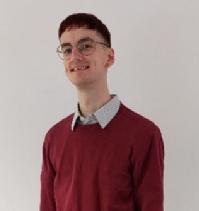 Luke James
Luke James
Translation reviewer and editor
I graduated in 2016 with a French and English degree and also took some Japanese lessons in the Language Centre. After graduating, I spent two years working as an Assistant Language Teacher in Okinawa, Japan on the JET Programme. After that, I returned to the UK to complete an MA in Applied Translation Studies, specialising in French>English and Japanese>English translation and subtitling. Upon graduating, I completed an internship at the Clear Language and Editing Unit of the European Parliament in Luxembourg. I now work as a Translation Reviewer and Editor at a translation agency based in the West Midlands. I am using my languages every day as I translate all kinds of texts and review other translators’ work. Arguably the most useful skill I picked up at Warwick was learning to write well in English! Studying languages really grounds you in the wider world and helps you become a global citizen. You’ll have the tools you need to forge deeper connections with people from different cultures and in different circumstances to your own. And whether you’re analysing poetry or writing a zany skit in your oral class, a degree in languages lets you really engage the creative side of your brain, which is something I cherish.

